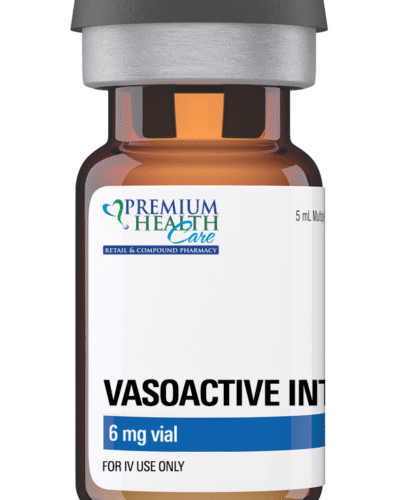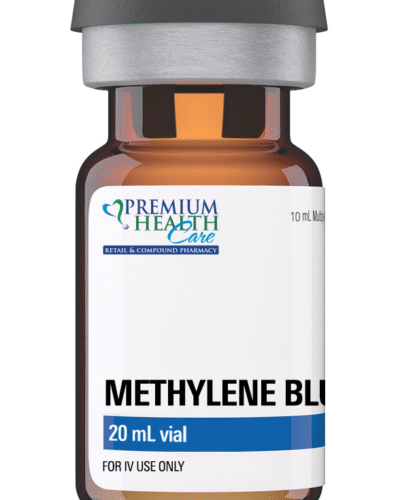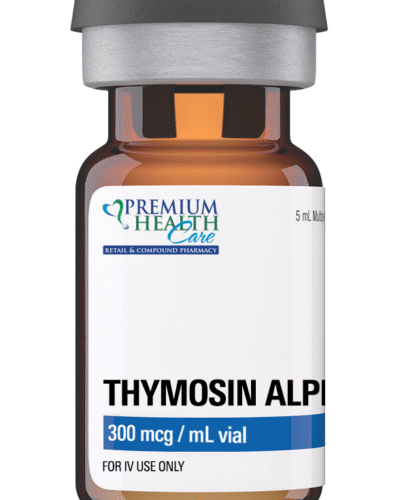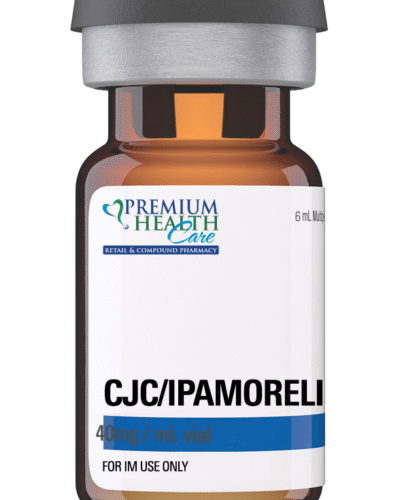Description
(Neuroprotective and Longevity Peptide Supporting Brain Aging, Sleep, and Cellular Health)
Targeted Peptide Therapy for Cognitive Longevity, Neural Repair, and Pineal Gland Function
Pinealon is a clinically formulated synthetic tripeptide developed to support the central nervous system, promote healthy aging, and improve cognitive resilience in both neurodegenerative and age-related decline contexts. Closely related to Epithalon (Epitalon) in structure and function, Pinealon exhibits highly selective activity within the brain and pineal gland, making it an emerging therapeutic in bioregulatory and anti-aging medicine.
This 20 mg vial (for reconstitution and subcutaneous or intranasal use) provides a concentrated dose of Glu-Asp-Arg, a short-chain peptide designed to modulate gene expression, enhance neural metabolism, and restore melatonin secretion rhythms—key to maintaining circadian balance, memory, and neuroendocrine health.
Product Overview
- Peptide Name: Pinealon
- Sequence: Glutamic acid – Aspartic acid – Arginine (Glu-Asp-Arg)
- Concentration: 20 mg per vial (lyophilized powder)
- Form: For reconstitution with bacteriostatic water (subcutaneous or intranasal use)
- Volume: 5 mL vial
- Preservation: Free from preservatives and stabilizers
- Use: For professional use only under guidance of a licensed healthcare provider
What Is Pinealon?
Pinealon is a synthetic neuropeptide derived from the same research lineage as Epithalon, developed by the Russian Academy of Medical Sciences for neuroendocrine support, brain aging, and stress resilience. It functions as a gene expression modulator, influencing proteins related to neuroplasticity, antioxidant defense, and mitochondrial activity.
Whereas Epithalon has broader systemic effects (especially in telomerase activation), Pinealon is primarily neurotropic—targeting the central nervous system, particularly the pineal gland, hypothalamus, and frontal cortex.
Mechanism of Action
Pinealon exerts its therapeutic impact via:
- Stimulation of pineal gland activity and melatonin regulation, supporting circadian rhythm
- Normalization of gene expression related to oxidative stress, synaptic transmission, and neuroplasticity
- Modulation of neuroendocrine signaling to reduce age-related hormonal decline
- Enhancement of neuronal repair and mitochondrial biogenesis
- Protection of neural tissue against hypoxia, oxidative damage, and apoptosis
This tripeptide plays a crucial role in supporting cognitive function, sleep cycles, stress adaptation, and neuronal longevity.
Clinical and Functional Applications
1. Cognitive Longevity & Memory Support
- Enhances short- and long-term memory consolidation
- Improves attention span and learning in aging populations
- Useful in age-related cognitive decline and early-stage neurodegeneration
2. Circadian Rhythm & Sleep Optimization
- Stimulates natural melatonin secretion
- Restores normal sleep-wake cycles disrupted by aging or jet lag
- Supports pineal gland regeneration
3. Stress Resilience & Neuroprotection
- Reduces neurotoxicity from oxidative and metabolic stress
- Improves mitochondrial function in the brain
- May mitigate impact of chronic fatigue, burnout, or neuroinflammation
4. Post-Stroke & Hypoxic Injury Recovery
- Shown in animal models to support neuronal regeneration
- Enhances cognitive rehabilitation in ischemic brain injuries
Administration & Dosing Guidelines
- Typical Dose: 10–20 mg daily, divided into 2–3 doses (subcutaneous or intranasal)
- Cycle Length: 10–20 days per cycle, repeated every 3–6 months depending on therapeutic goals
- Reconstitution: Reconstitute with 2–5 mL bacteriostatic water; store refrigerated and use within 20–30 days
- Route: Subcutaneous injection or intranasal spray (as guided by provider)
All use should be physician-directed and may be integrated into broader peptide, hormone, or mitochondrial therapy protocols.
Safety & Tolerability
Pinealon is well tolerated, with minimal reported adverse effects. It is non-immunogenic, non-toxic, and non-hormonal, making it suitable for long-term cycling in longevity protocols.
Potential minor side effects:
- Mild injection site redness (if administered subcutaneously)
- Temporary nasal dryness or irritation (if administered intranasally)
- Transient headache or drowsiness (rare)
Contraindications:
- Not recommended during pregnancy or breastfeeding
- Avoid in patients with active intracranial bleeding or acute infections unless cleared by a physician
Storage & Handling
- Store lyophilized vial at room temperature before reconstitution
- Once reconstituted, refrigerate at 2–8°C (36–46°F)
- Use within 20–30 days of mixing
- Keep out of reach of children; for professional use only
Why Choose Pinealon?
- Precision neuropeptide with targeted pineal gland and brain activity
- Supports deep brain functions like sleep, memory, and neuroendocrine balance
- Useful for patients with stress-induced cognitive decline, jet lag, or brain aging
- Non-stimulant, non-sedative, and well tolerated
- May be integrated with Epithalon, Semax, Cerebrolysin, or NAD+ protocols for enhanced results
Summary
Pinealon 20 mg (5 mL Vial) offers a promising neuroendocrine intervention for cognitive aging, brain repair, and restoration of pineal function. Its unique ability to target neural gene expression and support mitochondrial integrity positions it as a vital tool in the anti-aging and neuro-optimization toolkit. For individuals seeking sharper cognition, improved sleep, and long-term brain health, Pinealon provides clinically grounded, peptide-based support for a more resilient and focused mind.






Reviews
There are no reviews yet.